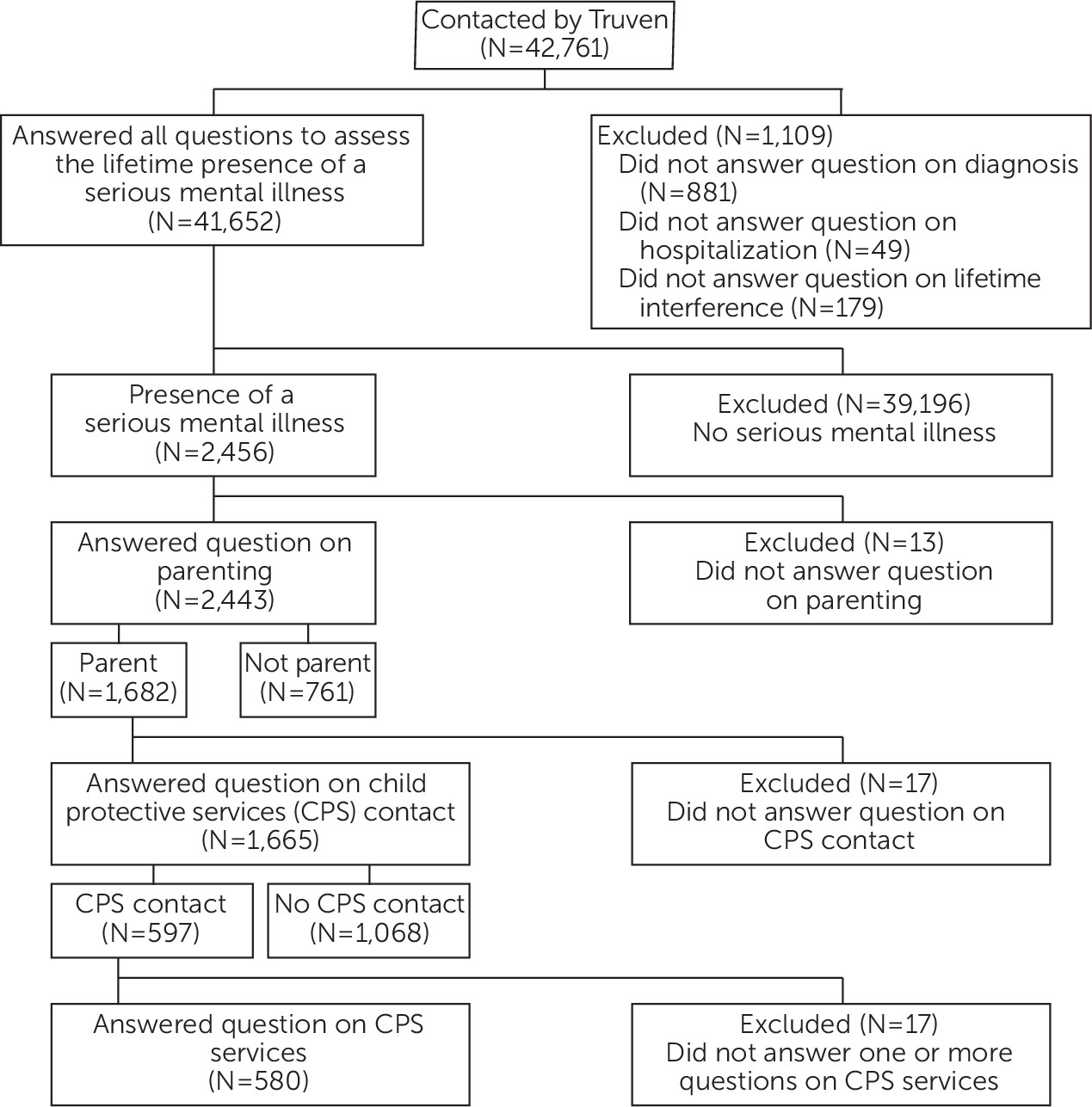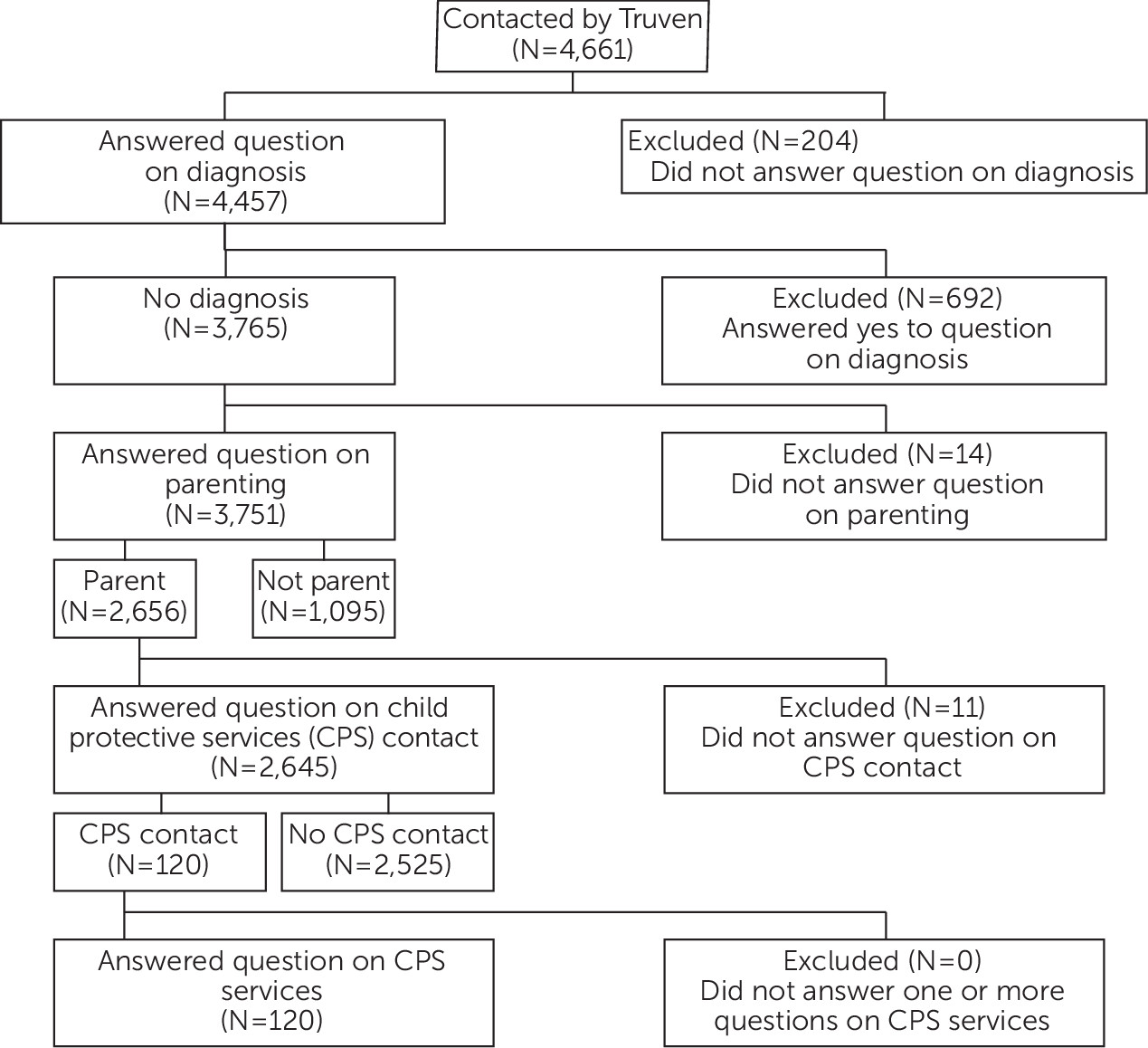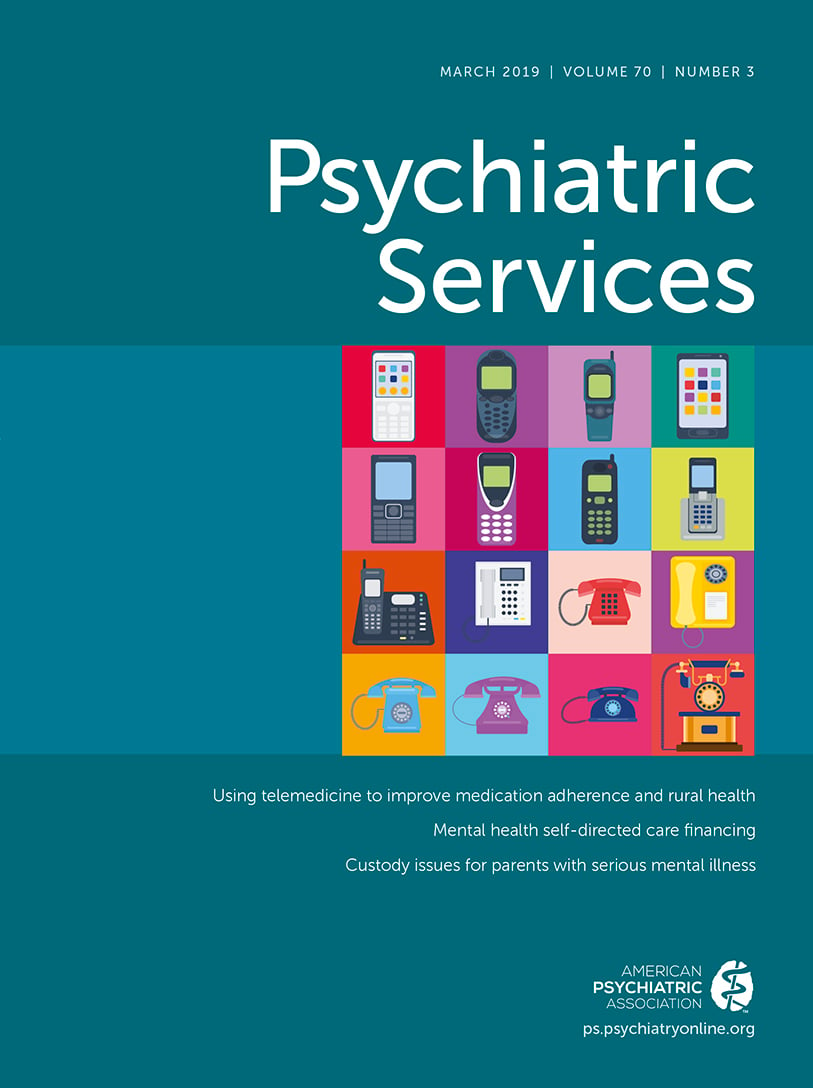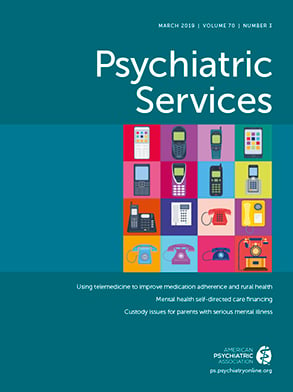CPS Contact and Services
Of the 1,665 parents with a serious mental illness who answered the question about CPS contact, 597 (36%) reported contact. Of the 580 parents with a serious mental illness who answered all three questions about specific CPS services, 452 (78%) received in-home services, 456 (79%) received out-of-home services, and 435 (75%) had a change in living arrangements. Of the 2,645 parents in the general population who answered the question about CPS contact, 120 (5%) reported contact. Twenty-four (20%) received in-home services, 22 (18%) received out-of-home services, and 27 (23%) had a change in living arrangements.
The rate of CPS contact was nearly eight times greater for parents with a serious mental illness compared with parents in the general population (relative risk [RR]=7.90, 95% confidence interval [CI]=6.56–9.52, z=21.76, p<0.001) and did not change substantially after the analyses controlled for gender and race (RR=7.94, 95% CI=6.60–9.57, z=21.88, p<0.001). Fathers were more likely than mothers to have CPS involvement (RR=1.53, 95% CI=1.36–1.72, z=7.05, p<0.001), but there were no significant differences in CPS involvement rates for whites and nonwhites. Within-group analyses showed that gender and race were not associated with CPS involvement in the general population, but among parents with serious mental illness, fathers (N=299, 47%) were significantly more likely than mothers to have CPS involvement (N=298, 29%) (χ2=57.50, df=1, p<.001).
Among all parents, those with a serious mental illness were much more likely to receive CPS services (RR=20.00). For parents with a serious mental illness, the risk of receiving in-home and out-of-home services was 29.8 and 32.8 times greater, respectively, compared with the risk for parents in the general population, whereas the risk of having a change in living arrangements was 25.6 times higher. No differences by race were found. Fathers were more likely than mothers to experience a change in their children’s living arrangement (RR=2.05, 95% CI=1.75–2.40, z=8.84, p<0.001), but the difference was due to outcomes among parents with serious mental illness. Among those parents, fathers were significantly more likely (N=242 of 623, 39%) than mothers (N=189 of 1,025, 18%) to have a change in living arrangements (χ2=83.54, df=1, p<0.001).
Parents without a serious mental illnesses were much more likely to receive no CPS services (RR=2.58, 95% CI=2.01–3.31, z=7.42, p<0.001). Parents with a serious mental illness were 3.8 and 4.2 times more likely to receive in-home and out-of-home services, respectively, and 3.3 times more likely to report a change in living arrangements.
After we controlled for gender and race, the adjusted RR of having a change in living arrangements following CPS contact was greater among parents in the serious mental illness group compared with parents in the general population (RR=3.18, 95% CI=2.28–4.45, z=6.79, p<0.001). Among all parents with CPS contact, fathers were more likely than mothers to have a change in living arrangements (RR=1.29, 95% CI=1.17–1.43, z=5.22, p<0.001), and whites had marginally lower rates of change in living arrangements than nonwhites (RR=.91, 95% CI=.82–1.00, z=−1.95, p=0.051). Among parents with CPS contact in the serious mental illness sample, fathers (N=242 of 289, 84%) were significantly more likely than mothers (N=189 of 291, 65%) to have a change in living arrangements (χ2=26.81, df=1, p<0.001).



